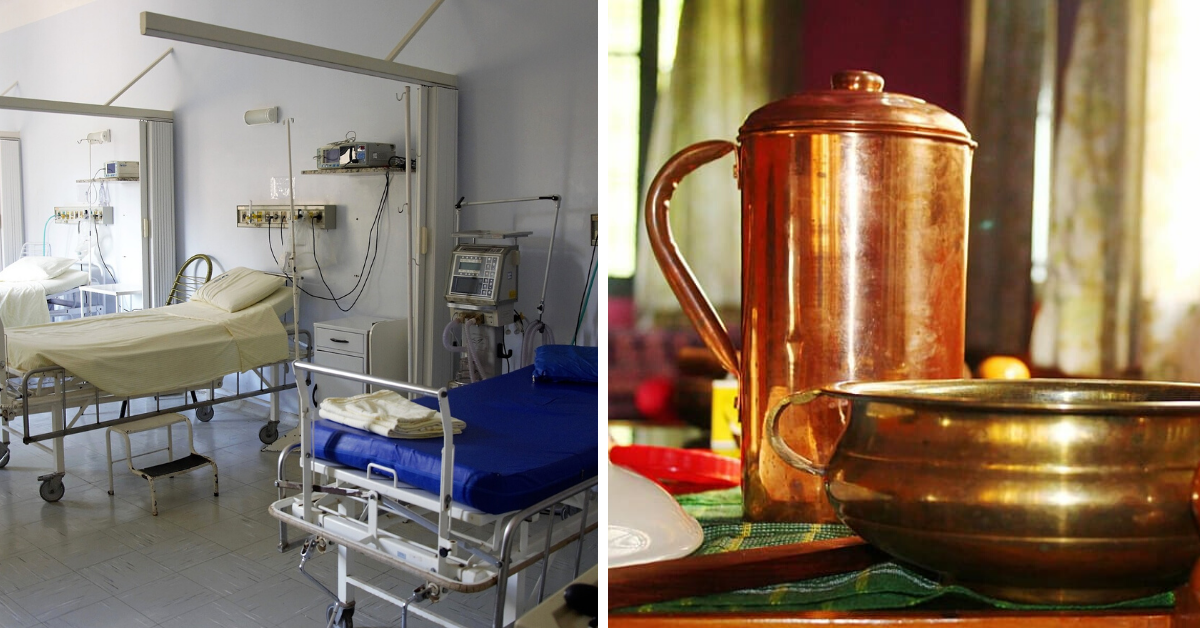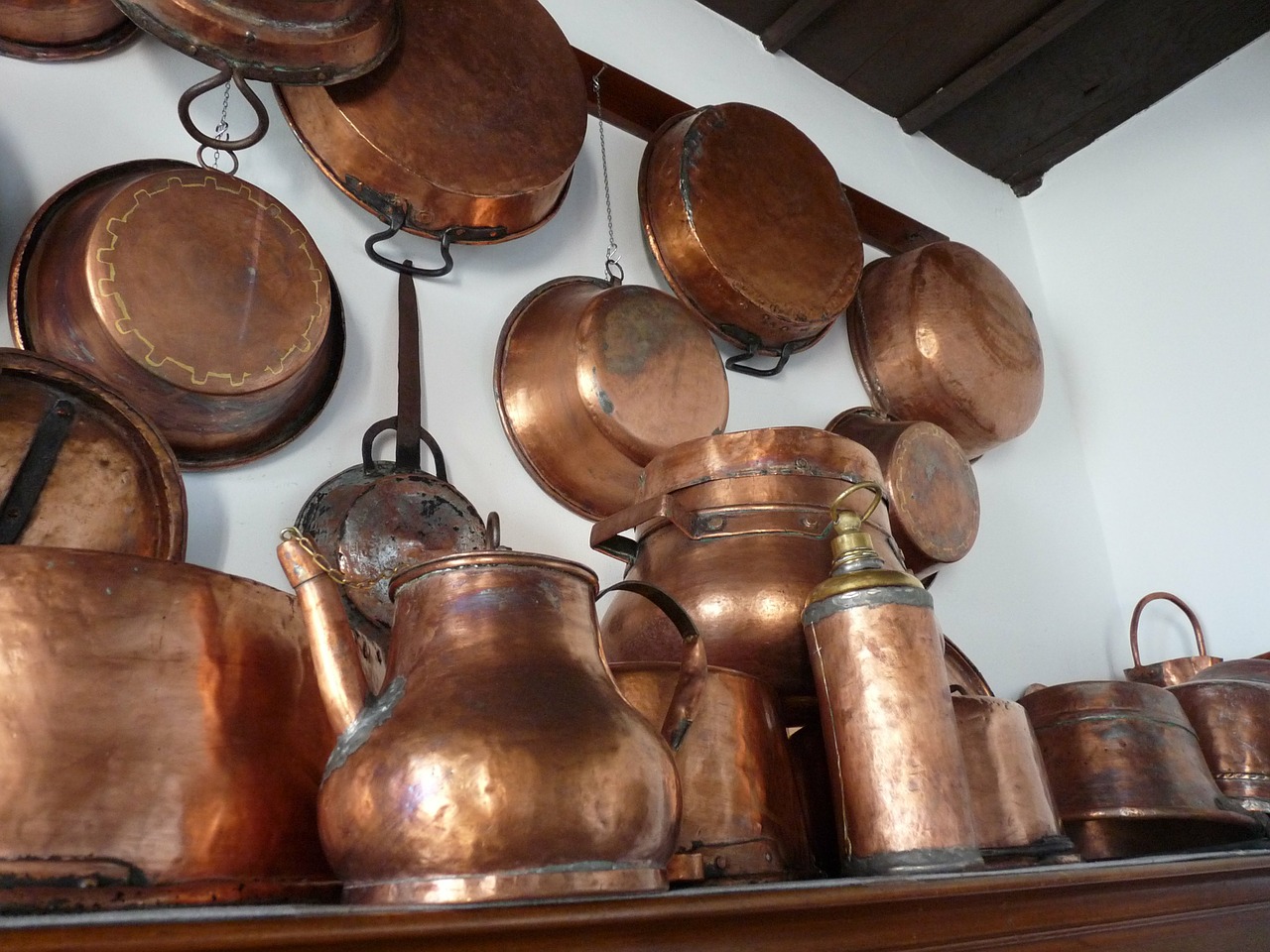How Traditional Copper Could Help During the COVID-19 Pandemic
“A 1983 study found that hospital doorknobs made of brass, which is part copper, barely had any bacterial growth on them, compared to stainless steel knobs which were “heavily colonized with E.coli.”

With the confirmed cases of the COVID-19 epidemic rising, scientists are searching for ways to prevent the virus from spreading including through surfaces.
Recent studies have shown that the virus lasted the least on copper (upto 4 hours) whereas it lasted up to 2-3 days on plastic.
So is it time to start adopting traditional copper utensils?
Here’s what we found out.
Copper Against Viruses

A study conducted five years ago on a different strain of coronavirus, the human coronavirus 229E (which causes respiratory tract infections) could still infect human lung cells after five days of existing on different materials like Teflon, ceramic, glass, silicone rubber, and stainless steel, while on copper alloys the coronavirus was ‘rapidly inactivated.’
Another study proved that bacteria, yeasts, and viruses are rapidly killed on metallic copper surfaces, and the term “contact killing” has been coined for this process. While the phenomenon was already known in ancient times, it is currently receiving renewed attention due to the potential use of copper as an antibacterial material in health care settings.
Health Benefits
Many studies have proved that drinking water from copper bottles can aid digestion because of its power to kill infectious bacteria. It is also said to help in weight reduction because of copper’s ability to break down fat. The antioxidants present in copper are also great for your skin and reduces ageing.
The Better India’s “BETTER TOGETHER” initiative has brought together civil service officers from across the country as they help migrant labourers, daily wage earners, frontline workers, and all those who need our help most in these troubled times. You can join us and support them in this fight against COVID-19.
Unable to view the above button? Click here
When it comes to cooking in copper vessels, it has been proven that it conducts heat twenty times better than steel, making your food evenly heated and cooked.
Eating in copper vessels has also been recommended due to their antimicrobial properties. Harmful microorganisms and other bacteria cannot survive in copper and therefore prevents the transmission of germs from food.
Recyclable

According to the World Copper Factbook from 2019, copper is also one of the most recycled of all metals—nearly all copper can be recycled and not lose any of its properties. This particular factor is not seen so widely in any other material.
Health Care
A 1983 study found that hospital doorknobs made of brass, which is part copper, barely had any bacterial growth on them, compared to stainless steel knobs which were “heavily colonized with E.coli.” It was also proven that workers in copper and alloy industries were less prone to diseases and epidemics due to their constant exposure to the metal.
Microbes that live on surfaces in hospitals and public spaces play a huge role in spreading an epidemic—and this is where copper could help. During this pandemic when there is serious concern about the spread of the COVID-19 via contaminated surfaces, a virus-killing metal seems worthwhile.
Also Read: Boost Immunity! 7 Traditional Antibiotics You Must Have in Your Kitchen
(Edited by Saiqua Sultan)
Like this story? Or have something to share? Write to us: [email protected], or connect with us on Facebook and Twitter.
If you found our stories insightful, informative, or even just enjoyable, we invite you to consider making a voluntary payment to support the work we do at The Better India. Your contribution helps us continue producing quality content that educates, inspires, and drives positive change.
Choose one of the payment options below for your contribution-
By paying for the stories you value, you directly contribute to sustaining our efforts focused on making a difference in the world. Together, let's ensure that impactful stories continue to be told and shared, enriching lives and communities alike.
Thank you for your support. Here are some frequently asked questions you might find helpful to know why you are contributing?


This story made me
-
97
-
121
-
89
-
167














